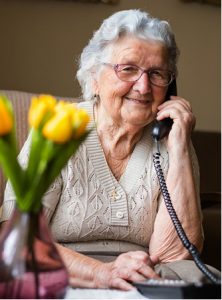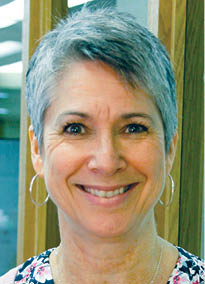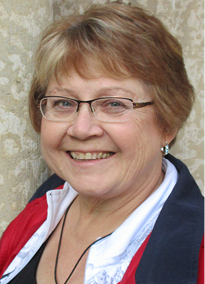In This Issue
National Caregiver Day
Providing Support During Extraordinary Circumstances
Staying in Touch: It’s Everyone’s Responsibility
Planning Ahead
Tips for Caregivers in the Home
Keeping up on Handwashing
Staying in Touch When You Can’t Visit
Keeping Minds and Bodies Active
We’re Still Here. We’re Still Walking…Virtually
Call for Board Members
Until We Can See You Again…
Honour Our Caregivers:
Now More Than Ever Before

This issue of our Alzheimer Society of Manitoba eNewsletter is dedicated to helping people to navigate the difficult world of Covid-19. Below you’ll find an array of great articles presented by our staff members.
But before we get to that, we want to remind everyone that Tuesday, April 7 is National Caregiver Day – a day to celebrate and honour Canadian carers. At the Alzheimer Society, we recognize the hard work and efforts of the many dementia caregivers who provide support to a friend or family member.
In this time of a global pandemic, we need to acknowledge and assist caregivers more than ever before. We need to keep them at the forefront of our minds and let them know how much they are appreciated.
Caregivers need our support today because they are facing additional challenges over and above the normal daily routine. They may be isolated and unable to get out for groceries or exercise, and they may be suffering fatigue and anxiety.
Call a caregiver you know on April 7 – or on any day! – and ask if there is anything you can do to help.
To all caregivers: we thank you from the bottom of our hearts!
Providing Support During Extraordinary Circumstances

At the Alzheimer Society of Manitoba, we are working hard to support the people in our community with dementia and their caregivers.
Even at the best of times, those living with dementia can be isolated, and right now, the challenges faced by these families are heightened. How can you avoid isolation when you must keep socially distanced for fear of catching or spreading the virus? How can you stay active and stimulated when you can’t attend programs or even go out for coffee? How can you stay in touch with your family member when you are not allowed to visit them in their care home?
We want all those affected by dementia and their caregivers to know that we are here for you. Read on to find excellent advice, tips and resources provided by our program staff. They are here to help you through this difficult time.
You are not alone. Our Helpline is open at 1-800-378-6699, and you can reach our provincial office in Winnipeg at 204-943-6622. Our regional offices are accepting calls as well – click here for a complete list of phone numbers. Or you can email us at [email protected]
Staying in Touch:
It’s Everyone’s Responsibility

Our streets are quiet, stores and community programs are closed, and everyone is staying home to prevent the spread of Covid-19. By now, social distancing has become second nature for the protection of both others and ourselves.
But social distancing does not have to mean social isolation. There are things you can do both as an individual and a community member to stay in touch with family members, friends and those in your community who may need social connections.
As a community member, neighbour and friend, you can:
- Make a list of relatives or friends you know who have dementia or who are caregivers.
- Pick up the phone and reach out. It doesn’t matter if you haven’t talked to them in a while. Now is the time to reconnect!
- Use Facetime if you know how – that’s even better!
- Ask them how they’re doing and how you can help them.
- Offer to be their emergency contact in case anything happens to them.
- Knock on their window and wave to them to let them know they’re not alone.
- Slip a note into your neighbour’s mailbox. If you only have a passing acquaintance with them, include your name and phone number and tell them they can contact you if they need anything.
Remember, we are all in this together, and helping each other is at the core of a dementia friendly community.

Wendy Schettler
Chief Executive Officer
Alzheimer Society of Manitoba
Planning Ahead

There are many of you out there: people who are caring for a person with dementia in your home. With the uncertainty in the world out there right now, it’s in your family’s best interest to plan ahead so you are ready if circumstances change. Here are some things you can do:
- Ask your pharmacist or doctor about filling prescriptions for a longer period so you don’t have to go out to the pharmacy as often.
- Ditto for groceries and household supplies. Ensure you have an adequate supply of the things you need, without stockpiling.
- Investigate resources in the community that may be helpful. For example, your local grocery story might offer online shopping or designated hours for seniors, and you may be able to download books, magazines and movies from the library.
- Pack a “ready to go bag” for yourself and the person with dementia in case one of you gets sick and must go to the hospital.
- If you, as the caregiver, get sick with Covid-19, you would be required to self-isolate or even be hospitalized. Plan for this scenario by:
- Identifying substitute caregivers who could take over in your absence.
- Documenting your care routine, including medication doses, dietary restrictions, time slots for recreational activities and sleep schedule. That way, the person taking over can transition smoothly into the role, and the person with dementia will experience less of an upset to their schedule.
- Setting up important details with the substitute caregiver, such as location of care (their home or yours?) and access to needed medical supplies or equipment.
- Posting important contact numbers, including doctors and family members.

Jessica Harper
Client Support Manager
Alzheimer Society of Manitoba
Tips for Caregivers in the Home
 Taking care of a family member with dementia at home can be challenging – even more so in this time of Covid-19. Below are some tips to help you navigate caregiving, along with ideas you can use to keep yourself healthy and entertained.
Taking care of a family member with dementia at home can be challenging – even more so in this time of Covid-19. Below are some tips to help you navigate caregiving, along with ideas you can use to keep yourself healthy and entertained.
Tips for Caregiving
- Changes in routine in your household are bound to be happening right now. As this can cause confusion and stress for the person with dementia, try to introduce new routines and maintain them as much as possible.
- If communication with the person tends to be frustrating, remember to breathe before you start. It will help you to stay calm as you converse.
- Keep communication with the person short, simple and clear, and use visual cues as much as possible. For example, when starting a meal, pick up a fork to demonstrate.
- If the person does not want to do what you are asking, say “okay” and try again later. Right now, the pressure is off because there’s no rush to go anywhere!
- If the person wanders, try to arrange a safe outdoor space to walk. If neither of you have symptoms, it might be possible to go for a walk around the block while practicing social distancing from others.
Tips for Taking Care of Yourself
Take care of yourself so you’ll have the energy to provide care. You can do this by:
- Extending your circle of support – ask family and friends if they are able to step in to help if needed.
- Staying connected by keeping in touch with friends and family using different methods of communications. You can phone or set up video chats via Facetime, Skype or WhatsApp. If you don’t know how to use these methods, ask a techie friend for help.
- Checking online for entertaining videos. Many arts groups and individuals are doing their part by posting free shows for the benefit of the community.
- Maintaining an exercise program, keeping a regular sleep routine and eating healthy food.
- Making time for a project or something you enjoy doing, be it reading a book, hooking a rug or watching sports reruns.
 Joyce Klassen
Joyce Klassen
Dementia Education Project Manager
Alzheimer Society of Manitoba
Keeping up on Handwashing

Frequent handwashing is an important preventative measure we can take to safeguard ourselves against Covid-19. However, people with dementia may not remember to wash their hands regularly or properly. (Click here to see the six handwashing steps recommended by Health Canada.)
Here are some tips to help guide them:
- Remind them to wash their hands. Wash your hands at the same time to demonstrate the technique.
- Give them one instruction at a time and use short, simple statements.
- Use the language they commonly use.
- Provide visual cues to help the person remember:
- Put up signs that illustrate the steps for handwashing in the kitchen, bathroom and laundry room.
- Use signs with a large font and large graphics.
- Click here for a PDF of an illustrated handwashing sign. You can print it and put it up, or make your own!
- Use alcohol-based hand sanitizer with at least 60% alcohol as a quick alternative to handwashing if the person with dementia cannot get to a sink or wash their hands easily.

Jennifer Licardo
Education Manager
Alzheimer Society of Manitoba
Visiting When You Can’t Visit

Care homes and hospitals are restricting visits from family and friends for the safety of everyone.
Not being able to be with the person in the care home can be stressful for you as the caregiver. For the person with dementia, who may not understand why no one is visiting, it can cause anxiety.
Here are some things you can do to keep in touch:
- Call the person regularly.
- Stand outside the building and wave at the person (if this is possible), or see if you can arrange to talk on the phone with them while the person is at the window.
- Send or drop off letters with photos of yourself and other family members.
- Contact staff members of the care home to get updates.
- Ask staff members how they are assisting their residents to stay connected with family members, and follow this lead.
Another thing to remember is that health care workers are doing the best they can in very difficult circumstances. It’s important to have patience when communicating with them and to understand that the residents’ safety is on the top of everyone’s minds.
 Lynda Mandzuk
Lynda Mandzuk
Client Support Coordinator
Alzheimer Society of Manitoba
Keeping Minds and Bodies Active

Even though the Society has had to suspend our support groups, education programs and community sessions (such as Minds in Motion® and Art to Inspire), it’s important to take steps to keep our minds and bodies healthy while cooped up at home. This is a time like no other to learn how to adapt our way of life and our activities of life to a home base.
Here are some ideas for caregivers and people with dementia to practice together.
Breathe
Breathing with intention helps us to relax both our minds and our bodies. Start by sitting tall in a comfortable chair – breathe in for a count of four, hold for two counts, breathe out for a count of six, hold for two counts. Repeat three to five times.
Move Your Body
We can release stress and anxiety by moving our bodies. Start by setting aside a specific time each day for walking.
- Do laps around the house.
- Walk outside: put the dog on its leash, go to your mailbox and wave at your neighbours. Stay on dry walking paths and use walking sticks if needed.
Schedule Daily Social Time
It’s never been more important to keep in touch with those you care about!
- Stay connected with family and friends by setting a specific time to call each of them during the day. Scheduling “coffee and a chat” helps to set a routine and gives some structure to the day.
- Video calls, if available, are a great way to stay connected while seeing the people you are talking to – especially if they are grandchildren, who can help to bring a smile to your face!
Replace and Modify
If you were in a community program that is no longer available, think of ways to replace it at home at the same time and day of the week. Ask friends for ideas, find online resources and use your own imagination to create an alternate home program – whether it be centered around art, music, history, physical activity or any other topic.
Let the person with dementia know that it’s necessary to do things a bit differently at home now.
Keeping Your Mind Active
Find things to do that will put a smile on your face and help you to forget your worries:
- Pull out those board games and cards and start playing!
- Put on some music, or play some yourself if you have instruments on hand.
Being involved in activities helps us to live in the moment and distracts us from the things we can’t control. By staying active, and by helping the person with dementia to do the same, it will be easier to ride out the social distancing until we can all get out and about again.
Resources to Help You Stay Active
Click here to see Kathy Diehl Cyr’s friendly face as she leads you through some exercises virtually. Do them together and make them part of your daily routine!
Click here to see a PDF with instructions and photos for strengthening and balancing exercises.
 Kathy Diehl Cyr
Kathy Diehl Cyr
Community Partnership Manager
Alzheimer Society of Manitoba
As we collectively learn how to deal with the challenges of Covid-19, one thing holds true – supporting the health and well being of our local community is our highest priority.
Now more than ever, social connection – even from a distance – is critically important for people with dementia and their caregivers. We are excited about taking our Walks online – or virtually – for that very reason.
This is our biggest annual fundraiser, and it’s necessary to enable us to continue the work we do to support families living with dementia in our communities.
We are challenging our walkers to be as creative as possible – and to have fun! So let’s join together for a virtual Walk! Register today so you don’t miss any updates. We’ll be announcing the date of the virtual event very soon.
The Alzheimer Society and IG Wealth Management will be walking with you!
A Leadership Opportunity:
Encouraging YOU to Answer the Call!

The Alzheimer Society of Manitoba needs you! We are looking for qualified candidates for our Board of Directors. Candidates will have:
• Ability and eagerness to deal with setting the Society’s values and vision.
• Big picture, future-oriented thinking.
• Willingness to create and initiate rather than approve.
• Moral courage.
• The willingness to contribute to a disciplined, high-performance, trustworthy and ethical team.
• The willingness to delegate operational detail to others.
If you believe you fit this bill, click here for further details and to find out how to apply.
Until We Can See You Again…
At the Society, we recognize that people who are facing dementia and their families benefit from receiving information as soon as possible. The journey with dementia poses many challenges, and having an understanding of what you are facing, and reliable information about the types of help available to you, makes a difference.
Therefore, it is with sadness and concern that we can’t at this time offer our usual face-to-face education programs you have all come to rely on as sources of education and empowerment. As many of you are aware, we have postponed our public education and support groups in an effort to minimize the spread of the Covid-19 virus.
Supporting the health and well being of our local community remains our highest priority. We know this is a difficult and isolating time for people. While we can’t meet you in person, we pledge to be a comforting and helpful voice for you if you have questions or just want to talk. You can reach us at:
204-943-6622 (Winnipeg)
1-800-378-6699 (in Manitoba)
[email protected]
As well, the following helpful resources are just a click away:
Coronavirus (Covid-19) Updates
Tips and Resources During Covid-19
Weekly Videos: Staying Active at Home
Everyone at the Alzheimer Society looks forward to the day when we can meet again.

